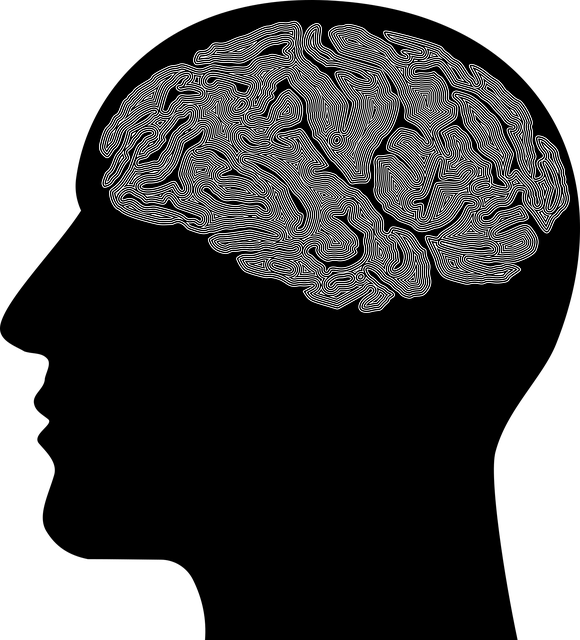Depression often arises from significant life changes like job loss, divorce, or even positive shifts. In Highlands Ranch, therapy and mental health awareness are crucial tools in preventing depression during these transitions. Skilled therapists help individuals process emotions, build resilience, and use evidence-based practices to maintain well-being. Identifying risk factors, adopting healthy lifestyle habits, and fostering social connections empower residents to adapt to life changes and prevent depressive episodes. Local community groups and therapy circles play a vital role in providing support and buffer against depression during major life transitions in Highlands Ranch.
Depression prevention is a vital topic, especially in communities like Highlands Ranch where major life transitions can significantly impact mental well-being. This article explores strategies to combat depression through a multi-faceted approach. We delve into understanding the connection between depression and life changes, highlighting the role of therapy tailored to Highlands Ranch residents. Additionally, we discuss identifying risk factors, adopting lifestyle changes, and harnessing community support as powerful tools in preventing and managing depressive disorders.
- Understanding Depression and Its Connection to Life Transitions
- The Role of Therapy in Preventing Depression in Highlands Ranch
- Identifying Individual Risk Factors and Building Resilience
- Lifestyle Changes for Improved Mental Well-being
- Community Support and Social Connections as Protective Measures
Understanding Depression and Its Connection to Life Transitions

Depression often emerges as a response to significant life changes or highlands ranch major life transitions. These can include events like losing a job, dealing with a divorce, experiencing the death of a loved one, or even positive shifts like starting a new school or moving to a different city. While these transitions are a natural part of life, they can trigger feelings of sadness and hopelessness in some individuals, potentially leading to depression.
Understanding the connection between life transitions and mental health is crucial for mental illness stigma reduction efforts. By recognizing that these shifts can be overwhelming and that seeking support through therapy or practicing effective self-care practices is a sign of strength, we can foster a more supportive environment for those facing such challenges. Increasing mental health awareness helps individuals recognize early warning signs and take proactive measures to maintain their well-being during life’s ups and downs.
The Role of Therapy in Preventing Depression in Highlands Ranch

In Highlands Ranch, therapy plays a pivotal role in preventing depression, especially during challenging times. Major life transitions can be overwhelming, and access to skilled therapists offers a safe space for individuals to process their emotions and develop coping mechanisms. Therapists equipped with evidence-based practices such as mood management strategies and compassion cultivation techniques are particularly effective. These professionals help clients navigate through stressful events, fostering resilience and emotional well-being.
Highlands Ranch’s Mental Health Education Programs design sessions that promote mental health awareness and provide tools to combat depression proactively. By integrating these programs into community initiatives, residents gain a better understanding of their mental health and learn to recognize early warning signs. Through therapy, individuals not only manage existing symptoms but also build long-lasting strategies for maintaining good mental health, ensuring a more balanced and fulfilling life in the face of life’s transitions.
Identifying Individual Risk Factors and Building Resilience

Identifying individual risk factors is a critical step in preventing depression, especially when considering the unique challenges and experiences that shape each person’s mental health journey. In Highlands Ranch or any community, major life transitions often play a significant role. These could include changing jobs, moving to a new city, losing a loved one, or experiencing financial difficulties. Recognizing how these events might impact an individual’s emotional well-being is essential. For instance, therapy and counseling can be incredibly beneficial during such times, offering support and strategies to navigate life’s twists and turns.
Building resilience is another key component of depression prevention. This involves cultivating the ability to adapt and bounce back from difficult experiences. Developing a robust self-care routine that incorporates emotional intelligence practices can make a significant difference. Engaging in regular exercise, practicing mindfulness meditation, maintaining a balanced diet, and prioritizing quality sleep are all evidence-based strategies for enhancing mental wellness. Additionally, exploring mental wellness coaching programs can empower individuals to develop coping mechanisms, set personal goals, and foster a sense of purpose, thereby strengthening their resilience against depressive episodes.
Lifestyle Changes for Improved Mental Well-being

In the quest to prevent depression, making significant lifestyle changes can significantly impact mental well-being. For residents in Highlands Ranch or those navigating major life transitions, adopting a holistic approach is essential. This involves integrating regular physical activity, maintaining a balanced diet rich in nutrients, and prioritizing quality sleep. These simple yet powerful strategies have been shown to boost mood, reduce stress, and foster resilience, serving as effective prevention tactics for both depression and burnout, particularly relevant for healthcare providers looking into burnout prevention strategies.
Additionally, cultivating strong social connections and engaging in activities that evoke joy and purpose are crucial. Therapy can play a significant role here, offering tools for coping skills development and teaching individuals how to navigate life’s challenges with increased adaptability. By embracing these lifestyle modifications, one can enhance overall mental health and resilience, effectively preventing depressive episodes and promoting sustained well-being.
Community Support and Social Connections as Protective Measures

In the face of major life transitions, Highlands Ranch residents often find solace and strength in their communities. Building and maintaining strong social connections can serve as a powerful buffer against depression. Surrounding oneself with supportive peers during challenging times allows individuals to share experiences, offer encouragement, and provide practical assistance. Local community groups, faith-based organizations, or even professional therapy circles can facilitate these vital connections, fostering a sense of belonging and purpose that is protective against the onset of depression.
Integrating mind over matter principles and confidence-boosting activities into daily routines further strengthens these defenses. Engaging in social events, participating in community service, or joining support groups centered around shared interests can all contribute to maintaining mental well-being. By leveraging the power of community, individuals can navigate life transitions with enhanced resilience, ensuring that they have the necessary tools and connections to prevent depression from taking hold.
In navigating the complexities of depression, especially during significant life transitions in Highlands Ranch, a multi-faceted approach is key. By understanding the connection between life events and mental health, utilizing therapy as a powerful tool, identifying personal risk factors, adopting healthy lifestyle changes, and fostering strong community connections, individuals can build resilience and prevent depressive episodes. Early intervention through therapy plays a pivotal role in managing stress and emotions during major life transitions, making it a vital resource for the mental well-being of Highlands Ranch residents.









